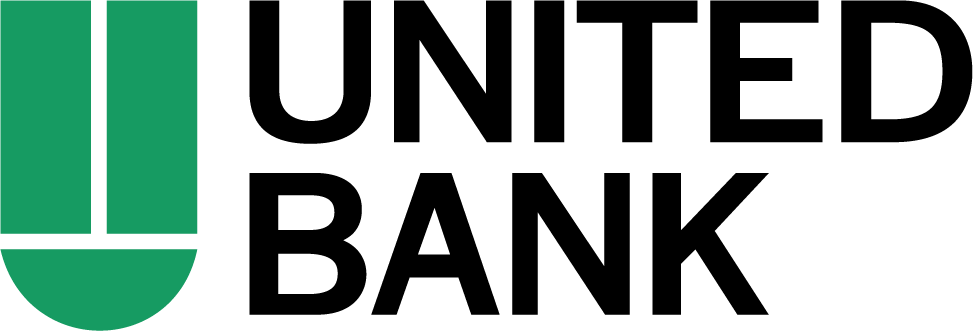Privacy and Security
OUR PRIVACY POLICIES:
United Bank is committed to protecting the privacy of our clients’ personal information. Please read our Privacy Policy for details regarding how we collect, share, and protect your personal information.
- Privacy Notice for Consumers
- Text Message [SMS] Terms of Use and Privacy Policy
- United Bank Social Media
- Online and Mobile Privacy Policy
Children's Policy
- Our Online Services are not directed to children under 13. We kindly request that children under 13 not provide information to us through our Online Services.
KNOWLEDGE TO KEEP YOU PROTECTED
United Bank is committed to protecting your accounts from cyberattacks and identity theft. The products and services we offer come with tools and resources to help keep you and your accounts safe. However, in some cases that may not be enough. We rely on you to take all necessary steps to ensure your accounts are protected on your end, as well. Check out the security information below or visit our Security Center for tips on how to stay safe online.
Fraud Alerts
Protecting Yourself Against Identity Theft
- Choose password combinations of upper- and lower-case letters, numbers, and symbols that are hard for a hacker to guess.
- Do not use your birthdate, address, or names a hacker may easily guess.
- Do not use the same password for multiple accounts; if you do, once a hacker guesses your password correctly, he or she will have access to all your accounts.
Monitor your bank account transactions
- Check accounts for fraudulent activity at least once or twice a week. Federal laws and industry practices protect account holders when criminals make unauthorized purchases using stolen payment card numbers or other information in certain situations.
Use a designated mobile device or computer for online banking and shopping
- Some individuals purchase an old PC or designate one device for online banking and shopping. Devices are less vulnerable to cyberattacks when they are not used for web surfing, emailing, social media or playing games.
Effectively use anti-virus and security software
- It is important to install and constantly update anti-virus and security software. This includes basic anti-virus programs, as well as program updates. Manufacturers are consistently updating their products and services, so they operate as efficiently as possible, and incorporate the most up-to-date security technology. Next time a program, even as basic as Word, offers an update download it. Please note, you shouldn’t accept updates as they pop up on your computer, because those can be malware or viruses. Instead, you should go directly to the software website, find the appropriate update, and download directly from the site.
Be cautious when connecting to the Internet
- A public computer in places like a hotel business center or library may not have up-to-date security software and could be infected with malware. In addition, if you are using a laptop or mobile device for online banking or shopping, avoid connecting it to a public wireless network. Criminals may intercept your device's signal and use it to collect personal information.
If you are a victim of a cyberattack and your identity has been stolen, contact the Federal Trade Commission to report identity theft and get a recovery plan.
For more tips on computer and internet security, watch the FDIC's multimedia presentation Don't Be an Online Victim: How to Guard Against Internet Thieves and Electronic Scams. Also, visit On Guard Online for information from the federal government on how to be safe online. The site includes videos from the Federal Trade Commission on what to do if your email is hacked or if malware attacks your computer.
Protecting Your Business Against Email Compromises
Business Email Compromise (BEC) is defined by the FBI as “a sophisticated scam targeting businesses working with foreign suppliers and/or businesses that regularly perform wire transfer payments. The scam is carried out by compromising legitimate business email accounts through social engineering or computer intrusion techniques to conduct unauthorized transfers of funds.” If your business conducts any transaction via wire, you and your company could be at risk.
The FBI's 2024 Internet Crime Report reported $2.77 billion in losses from BEC, making BEC the second costliest cybercrime category overall. Just like consumer scams, business scammers are constantly developing new and sophisticated ways to steal money from businesses, and it can be difficult to know what to look out for. Read more about Your Business and Financial Crimes.
What Can You Do to Protect Yourself and Your Business?
Know and guard yourself against the common methods of attack, including:
Phishing
- Phishing emails are sent to many contacts simultaneously to “fish” sensitive information; hackers pose as reputable sources, such as banks, credit card providers, delivery firms, law enforcement, and the IRS, to name a few.
Spear Phishing
- A more targeted form of phishing, the cybercriminal has either studied up on the group or has gleaned data from social media sites to con users. The email generally goes to one person or a small group of people who use that bank or service. Some form of personalization is included – perhaps the person’s name or the name of a client.
Executive Whaling
- Targeting top executives and administrators, criminals attempt to pull money from accounts or steal confidential data. Detailed, personal information about the executive and the business has been obtained prior to execution of this method.
Social Engineering
- The three previous techniques fall under the broader category of social engineering. Social engineering in this application is the manipulation of people to trick them into divulging confidential information or providing access to funds. The art of social engineering might include mining information from social media sites. LinkedIn, Facebook, and other venues provide a wealth of information about organizational personnel. This can include their contact information, connections, friends, ongoing business deals, and more.
Reporting Fraud and Disputes
If you suspect you have fallen victim to a scam, identity theft, or other fraud schemes, please download our Fraud Victim Guide. This resource provides important steps recommended in accordance with the Federal Trade Commission guidelines.



